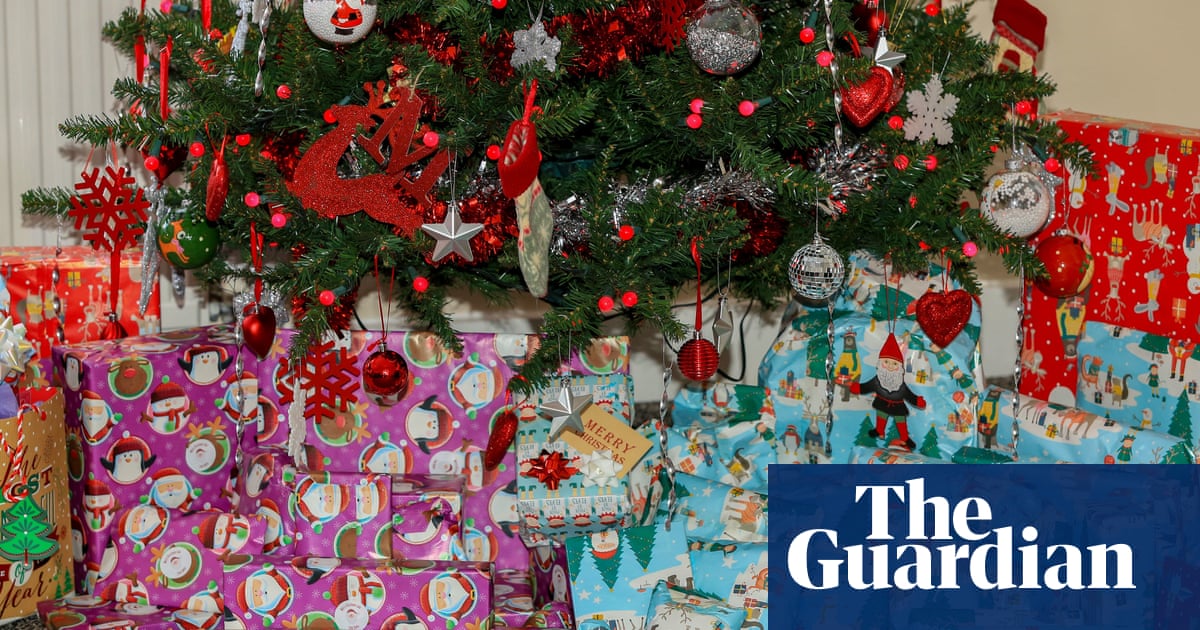
Ralph Morris’s Christmas cards will include an addendum for his friends this year: that he’s finished with Christmas cards.
Before he retired from teaching Morris, 71, from Grimsby, used to send about 130 cards a year, which has steadily reduced to “around 80” this year. But no more.
“It’s something that my wife and I have considered for the last four or five years,” says Morris. “It seems a little onerous when you think about the paper and the amount of money it costs.” Morris says he will now spend the £50 that the postage usually costs on donations instead.
“We want to put the money to good use, with the parlous state the country is in. I usually spend about £10 a week on food banks here [in Grimsby]. It doesn’t matter when I go these days, there’s hardly anything in there. I assume other people aren’t able to give so much any more.”
Morris won’t be exchanging gifts with his friends, either, only family. “Partly, it’s because it’s difficult to find something to buy,” he says. “But also, it’s like going through the motions. We are all in our 70s now; there isn’t anything that we actually need. We’ll keep the social side. We have six or eight friends who meet up for our birthdays and we’ll still do that. But as for gifts, we’re going to stop.”
For others, cutting back on Christmas spending has already become a tradition, apparently free of Scrooge-like connotations.
In Portsmouth, Anne England, 65, decided to give up buying expensive gifts last year, saying it felt like an “overindulgence”. Instead, she started a £20 secret Santa with her family and two friends from Ukraine, who share her home.
“Everyone had bigger bills for things like energy,” she says, “so we felt for the kids’ sake that we would cut back a bit. We each take a piece of paper with a name on it, and buy a gift for that person. We set up a WhatsApp group wishlist and set the spending limit.”
Last year’s offerings included a chilli sauce kit, slippers, a handbag, bento lunch boxes, socks and Dad’s Army DVDs.
“Nobody is desperate for piles of gifts any more. I don’t want to sound holier than thou, but profligate spending seems out of place when so many other people are having a tough time.”
Irenee, 30, from Bristol, has agreed with her family to spend less this Christmas by sourcing all presents from charity shops. “Credit to my sister-in-law, who suggested it. It’s great fun, takes the pressure off and gives some money to a good cause. We all felt like we’ve got so much stuff, but this doesn’t take away from the joy of giving and receiving gifts.”
It reduces waste, which “will end up back in the charity shop anyway”, she adds.
Their best finds? A French press, a travel mug and “a really nice jumper from my sister-in-law – that was a good one”.
Shirley Lawrie, 77, from Burley in Wharfedale, has gone a step further: she makes charitable donations on behalf of family members rather than giving traditional gifts. “For many years now, I have only bought presents for the younger generation, and, except when they were very small, those presents have been donations.”
On a typical year, Lawrie will donate to wildlife charities. “I might give to slightly different organisations this year,” she says. “Palestine and Israel are on my mind, so maybe the International Red Cross or something like that.”
Her grandchildren, aged 12 and 16, don’t seem to mind, she says. “We donate to the Wildlife Fund and the 12-year-old can choose which animal to support. He chose turtles last year.”
For Sylvia, 77, from London, giving homemade presents has helped save money and reduce leftover Christmas debris.
“When I first mentioned [making homemade presents] to my family, they were a little surprised, but everybody managed it fine. It is lovely to open gifts, but even nicer when they haven’t made a huge impact on the environment. My grandchildren appear to have everything that they need – although I’m sure they would disagree,” she says.
Sylvia knitted scarves out of spare scraps of wool for the family, and they followed suit. “One of the kids baked biscuits and another made little necklaces. And one of them made me a calendar with a drawing for every month of the year.”
Sylvia’s rule again this year is that all family gifts must be homemade, regifted or from a charity shop. “I think it sends quite a good message to the grandchildren,” she says. “It shows that making things can be fun, and that you’re giving something with a bit more meaning.”












